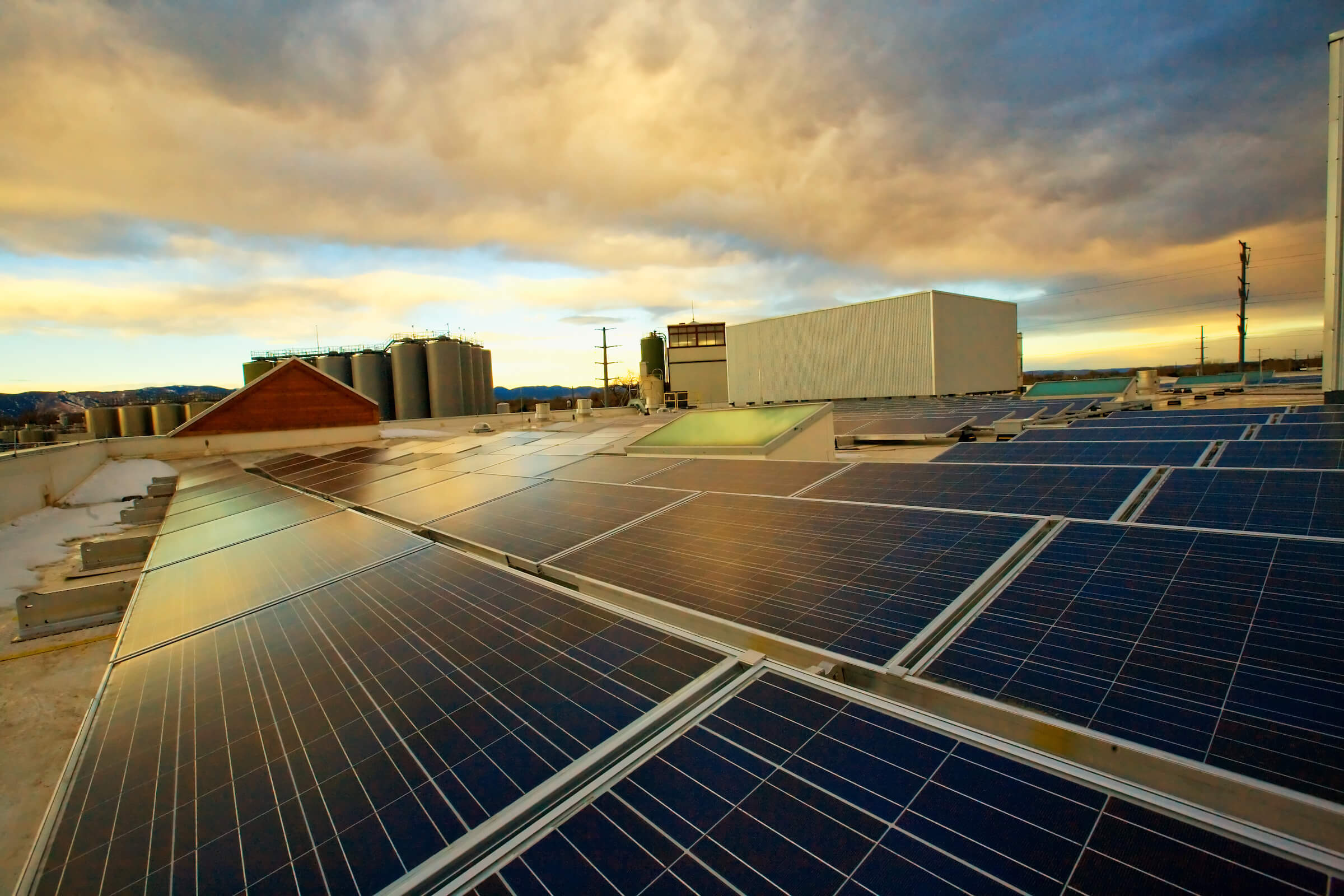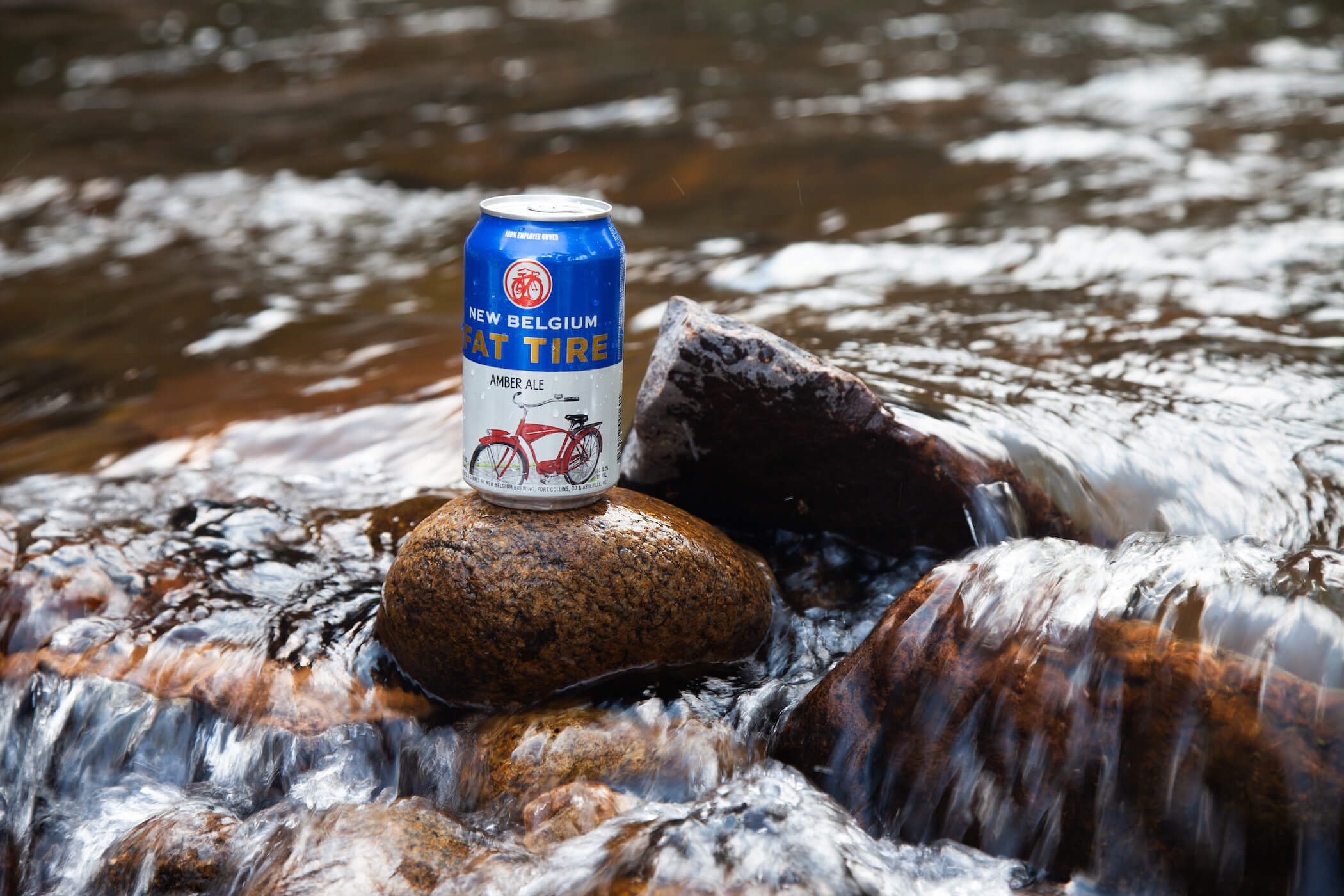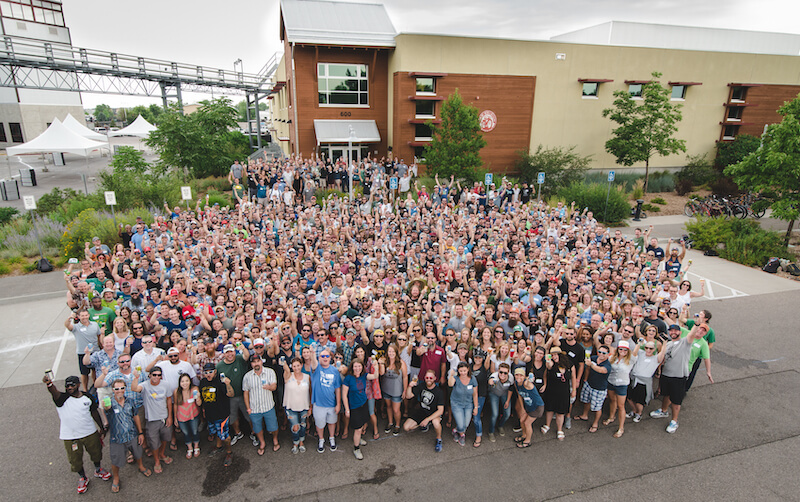
By Melissa Goodwin.
Background of the Brewery
If I said the words “beer culture” to you, what would pop into your mind? Burly forearmed women with fists full of steins? A sports fan with cans and siphons strapped to his hat? A Dalmatian and some Clydesdales? All those images have a place in the beer world. But what if I suggested an image of a brewery with solar panels on the roof and an on-site water treatment plant? How about a beer company that has donated over $10 million to charity through its grants program? Or a former CEO and current Executive Chair of the Board of Directors who has been named one of 2018’s 30 World-Changing Women in Conscious Business? That has a place, too, in the beer culture of New Belgium Brewing Company.
The word “culture” has become a bit trendy, which is why New Belgium’s website says that culture isn’t about what you say, it’s about what you do. And this brewing company does a lot.
Being a force for good has been a part of the company’s identity and vision since its start in 1991. To that end, it became certified as a B Corporation, meaning it’s certified by the nonprofit B Lab to meet rigorous standards of social and environmental performance, accountability, and transparency. These standards are evident in every aspect of the business.
Sustainability Initiatives
In its 2018 Force For Good Report, New Belgium outlined the company’s efforts to combat climate change. Water, barley, hops and fruit harvests have been hit hard by climate change. To counter these effects, New Belgium has taken extraordinary measures to make its business green and sustainable. It works hard to reduce its greenhouse emissions by utilizing solar panels, creating electricity by using process wastewater, capturing and repurposing heat created in the brewing process, and achieving LEED certification. These efforts are not funded by passing the cost on to their customers, but by taxing itself on its purchased energy usage. That money is then used to fund the processes necessary to help reduce its reliance on fossil fuels.
As impressive as New Belgium’s eco-conscious efforts are, its human-conscious achievements are downright stunning. In late 2012, employees were gathered together by CEO Kim Jordan to discuss the fact that the business had been sold. Each employee was handed an envelope; inside was a reveal of the new owners… a mirror. Their Employee Stock Ownership Plan had just gone from 42 to 100 percent employee ownership.
Kim told NPR, “My advisers said it’s really customary to give management ownership, but you really don’t want to give a forklift driver ownership. I said, ‘No, I really
do want to give them ownership.’ To me, we were building this community and we were all in this together. I wanted to test the model where people in America get to own something where they build value.”
Interview with Jesse Claeys
I spoke with Jesse Claeys, a New Belgium Brewing spokesperson, to find out how and why it was so important to build these values into the company from the get-go.

Green Living (GL): How did the commitment to being green and sustainable come about?
Jesse Claeys (JC): When our co-founders started the company in the basement of their home in 1991, they took a hike out to Rocky Mountain National Park, where they defined their core values and beliefs which would eventually be implemented company-wide. They included environmental stewardship, honoring nature at every turn as a business, being a business role model both socially and environmentally, creating jobs, having meaningful relationships with one another, and having fun.
GL: Making the modifications to your brewery to make it eco-friendly must have been enormously expensive. Was there ever a hesitation about the added costs?
JC: The reason we do all of this is because it makes business sense. There are certain motivations for getting into it and that comes from a deep place of compassion and understanding, but we wouldn’t be able to do it if we were not able to make a strong business case for it. Simply put, using less resources saves money. It is just extremely smart, especially for the long-term health of our business, to make investments in sustainability, reduce our environmental impact, and enhance others’ lives.
GL: Are there ways that you’re contributing to the sustainability of your community, city, and state?
JC: We work primarily on three areas: climate change issues, land and water protections, and social equity. We also have a policy arm involved in advocacy around those areas. Then we have a philanthropic arm that supports our initiatives, values, and goals. We give away $1 per barrel of every barrel sold. There have been a number of areas where we’ve been successful.
Kim Jordan and her team have built a legacy at New Belgium Brewing Company whose effects have undeniably impacted the beer world. She has also shown how businesses can be a force for good by promoting positive social and cultural practices and committing to environmental stewardship. And by producing world-class beers in an environment of respect, creativity, and fun, she’s elevated beer culture to lofty, tasty new heights.
Find out more about New Belgium at www.newbelgium.com.

Melissa Goodwin is the owner of Wave Health and Pain Therapy, where she offers low-frequency acoustic wave pressure therapy, a drug-free, non-invasive approach to total body health and pain relief. Learn more at wavehealthaz.com.
Photography courtesy of New Belgium.






